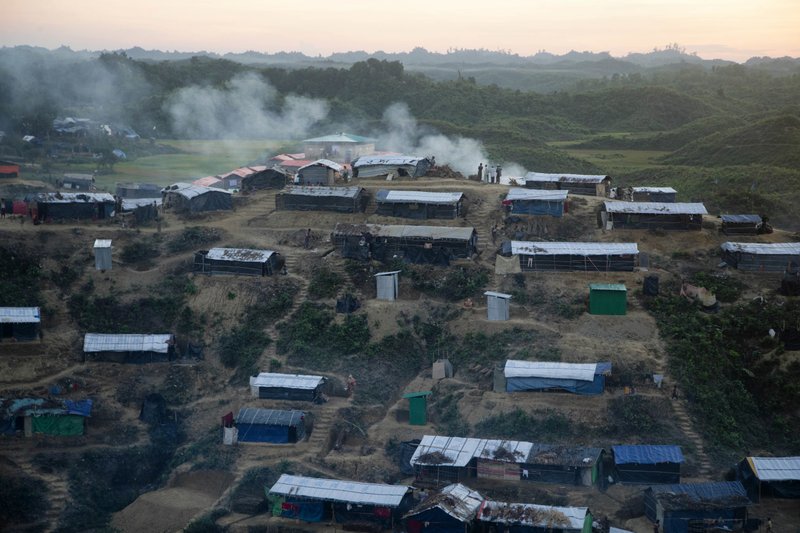NAYPYITAW, Burma -- Burma's military issued its most forceful denial yet that security forces committed atrocities during what the government has called "clearance operations" in the west of the country, saying an internal investigation had absolved them of any wrongdoing in a crisis that has triggered the largest refugee exodus in Asia in decades.
The report contradicts consistent statements from ethnic Rohingya Muslim refugees now in Bangladesh -- some with gunshot wounds and severe burns -- who have described massacres, rape, looting and the burning of hundreds of villages by Burma's army and civilian mobs.
The United Nations humanitarian office said Tuesday that the number of Rohingya who have fled Burma for Bangladesh since Aug. 25 has risen to 618,000.
In a statement issued late Monday, the military said it had interviewed thousands of people during a monthlong investigation into the conduct of troops in western Rakhine state after Rohingya insurgents launched a series of deadly attacks there Aug. 25.
While the report acknowledged that battles against militants from the Arakan Rohingya Salvation Army had left 376 "terrorists" dead, it also claimed security forces had "never shot at the innocent Bengalis" and "there was no death of innocent people."
Burma's government and most of the Buddhist majority say the members of the Muslim minority group are "Bengalis" who migrated illegally from Bangladesh, not acknowledging the Rohingya as a local ethnic group even though they have lived in Burma for generations.
Burma is often called Myanmar, a name that military authorities adopted in 1989. Some nations, such as the United States and Britain, have refused to adopt the name change.
New York-based Human Rights Watch said the military's latest claims were "contrary to a large and growing body of evidence" documenting severe rights abuses in Burma.
"The Burmese military's absurd effort to absolve itself of mass atrocities underscores why an independent international investigation is needed to establish the facts and identify those responsible," said Brad Adams, Asia director at Human Rights Watch. "The Burmese authorities have once again shown that they can't and won't credibly investigate themselves."
The military said the investigation -- which was led by Lt. Gen. Aye Win, inspector-general of the defense forces -- showed that security forces did not use excessive force and abided by the army's rules of engagement.
Burma's government does not allow independent journalists to travel freely to the parts of Rakhine state where most of the latest violence has taken place.
The report comes just ahead of an expected visit today by U.S. Secretary of State Rex Tillerson, who is to hold talks with senior officials on the crisis.
Information for this article was contributed by Todd Pitman and Edith M. Lederer of The Associated Press.
A Section on 11/15/2017
